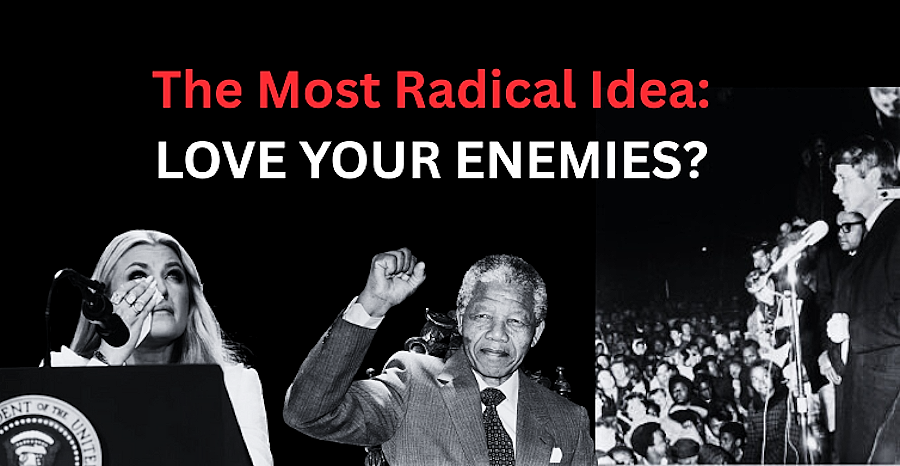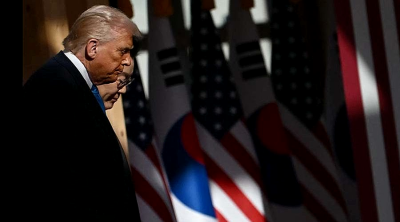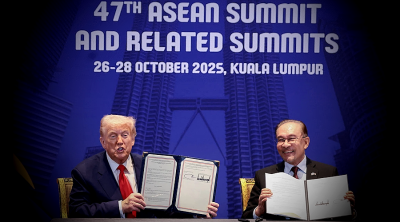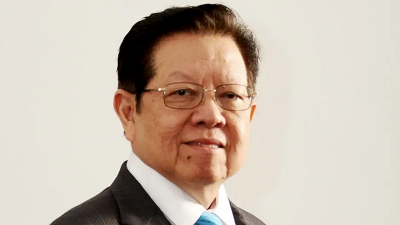
At the memorial service of slain conservative activist Charlie Kirk in the United States, his widow Erika stood before tens of thousands grieving the murder of her husband, and startled many with the words: “I forgive the young man who killed my husband.”
She also said the answer to hate is not hate—it is always love, to love our enemies.
Forgiveness often comes before love. It is the first step in softening our hearts towards those who have wronged us.
Without it, the call to “love our enemies” as suggested by a humble carpenter two thousand years ago, feels impossible. But with it, reconciliation can begin to take shape.
History offers us other moments when leaders reminded us of this choice.
The night Martin Luther King Jr. was assassinated in 1968, riots erupted in more than 100 American cities—but not in Indianapolis.
There, Bobby Kennedy, upon hearing the news while on his presidential campaign trail, spoke to a stunned crowd, urging them not to meet hate with hate.
He quoted the Greek poet Aeschylus: “In our sleep, pain which cannot forget falls drop by drop upon the heart, until, in our own despair, against our will, comes wisdom.”
His plea for compassion helped Indianapolis remain calm while much of the nation burned.
How we wish for a leader like Bobby Kennedy today. Tragically, he himself was assassinated two months later—another victim of political violence.
Why it is so difficult
Human conflict—between people, communities, or nations—often lasts for generations.
Wounds fester, grievances are passed down, and hatred hardens. Whether between Israelis and Palestinians, India and Pakistan, conservatives and liberals, or among Malaysia’s ethnic communities, reconciliation feels like an unreachable dream at times.
To forgive, and eventually to love our enemies, does not mean approving their actions or abandoning justice.
It means acknowledging their humanity, refusing to let hatred consume us, and daring to seek a path to peaceful coexistence.
Lessons from the past
In South Africa, the end of apartheid could easily have led to civil war. But Nelson Mandela and Desmond Tutu championed forgiveness through the Truth and Reconciliation Commission.
Mandela, who spent 27 years in prison, emerged not with vengeance, but with a determination to build a multiracial democracy.
Closer to home, older Malaysians still remember the dark days of 13 May 1969, when ethnic tensions erupted into violence.
Yet we also know of countless quiet stories—of neighbors protecting each other, communities rebuilding trust—that remind us peace is possible when people refuse to let hatred define them.
Such quiet stories must continue if we are to be fully healed as a nation.
Choosing forgiveness may be the only way we ever learn to love our enemies.
A tale of two speeches
At Charlie Kirk’s memorial, Erika Kirk’s words of forgiveness stood in stark contrast to those of President Donald Trump, who spoke at the same event.
Erika extended grace even towards the accused killer, calling for love in the face of pain. Trump, however, emphasized enmity, declaring that he “hates” his opponents.
This contrast captures the struggle we face in every conflict.
Will we choose the radical path of forgiveness that can lead to love, or will we cling to the easier instinct of hate and retaliation?
What makes peace possible
Choosing forgiveness is not easy. It is strength—the refusal to let hatred dictate our future.
To end the vicious cycle of hatred and violence in a society, several factors matter:
1. Visionary leadership. Leaders must rise above vengeance. Mandela chose reconciliation; Erika Kirk chose forgiveness; Bobby Kennedy chose peace. Such acts inspire societies to stop hating and to seek peace.
2. Institutions that promote dialogue. Truth commissions, peace agreements, and reconciliation bodies provide safe spaces for people to face painful truths while committing to move forward.
3. Grassroots connections. Peace grows when ordinary citizens choose understanding over fear. In Malaysia, interfaith dialogues, youth programs, and cultural exchanges help dismantle stereotypes.
Choosing the radical way
In every age, the world faces a choice: repeat cycles of hatred or take the radical path of love.
It is not easy, and it may never be complete. But history teaches us that reconciliation, however imperfect, is the only path that truly secures peace.
Bobby Kennedy’s words on that dark night in 1968 still echo today.
We can let grief harden into hate, or we can let it press wisdom into our hearts.
The choice between vengeance and forgiveness remains before us. And choosing forgiveness may be the only way we ever learn to love our enemies.
(Thomas Fann is the former Chairperson of BERSIH and writes as a private citizen who still believes in ordinary Malaysians whom he believes are decent, fair-minded, and share a common desire to live in peace and harmony.)
ADVERTISEMENT
ADVERTISEMENT








































